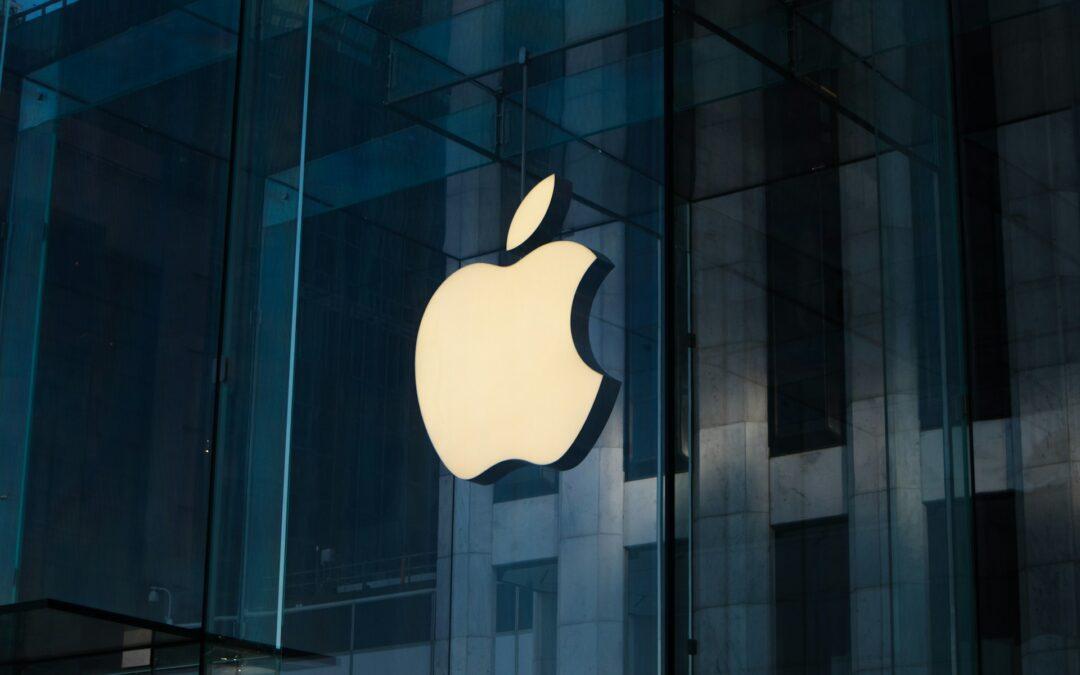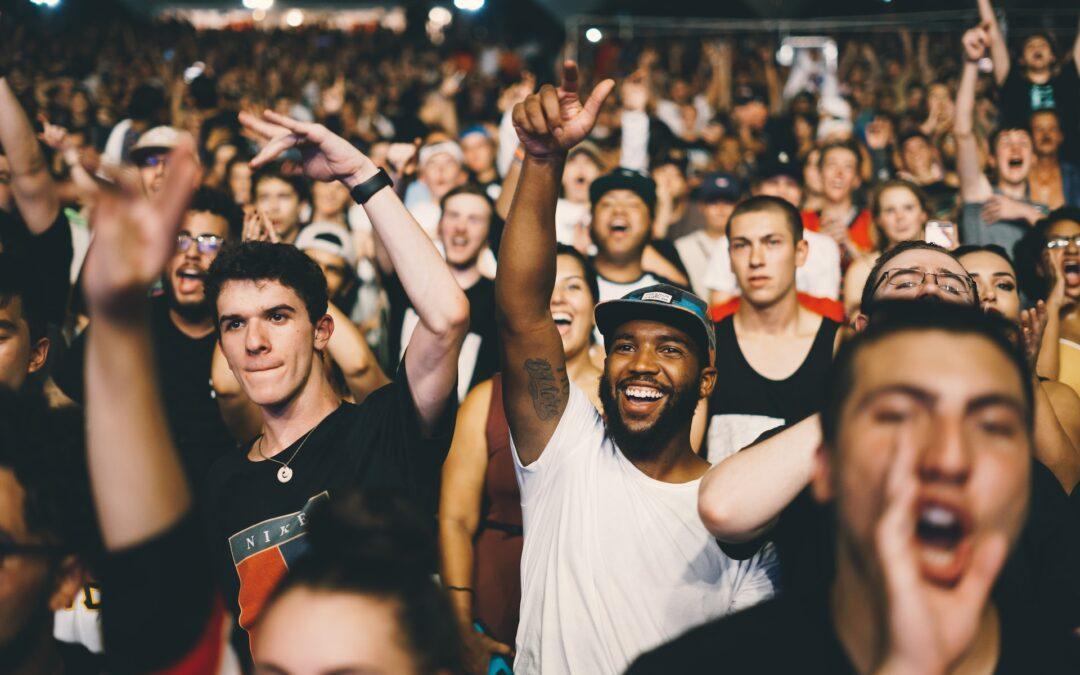In this article, we will explore 30 jobs that will be safe in the AI and robot world. These jobs span a range of industries and sectors, from healthcare and education to finance and engineering. We will examine the skills and knowledge required for these jobs, as well as the potential for growth and advancement in each field. By the end of this article, you will have a better understanding of the job market in the age of AI and robotics and the opportunities available to you.
Artificial Intelligence (AI) and robotics is already revolutionizing the way we live, work, and interact with the world around us. While these technologies have brought tremendous benefits to society, they have also raised concerns about the impact they may have on the job market. Many people worry that robots and AI systems will replace human workers and lead to widespread unemployment.
However, this fear is not entirely justified. While some jobs may become obsolete in the age of AI and robotics, there are many others that will remain safe and even thrive. In fact, as AI and robotics continue to advance, new job opportunities will emerge that require human skills and expertise.
Future Jobs That Are The Most Likely to Survive AI & Robot Revolution
The characteristic of the jobs that will be most resistant to the AI & robot revolution is that they will be jobs that require a high degree of human interaction, empathy, personalization and creativity. The most important of these are:
1. Professional Nannies
One of the most important aspects of raising a child is the emotional bond and connection that develops between the caregiver and the child. A professional nanny not only provides physical care, but also emotional support, empathy, and a sense of security to a child. It’s hard to imagine a robot or AI replacing this level of human connection and emotional intelligence. Moreover, a nanny can adapt and adjust to the unique needs of each child, something that would be very difficult for robots and AI to replicate. Even the most advanced machines lack the empathy and intuition that comes naturally to humans.
2. Creative professionals
The world of art, music, writing, and design requires a level of creativity and intuition that is difficult for machines to replicate. The ability to generate new ideas, experiment with different techniques, and think outside the box is what sets creative professionals apart. While AI can certainly assist with certain aspects of the creative process, such as generating music or artwork based on pre-existing data, it lacks the spontaneity and originality that make human creativity so valuable. In a world where technology dominates many aspects of our lives, the role of the artist, writer, musician, and designer remains a vital part of human expression and culture.
3. Nurses
In the field of healthcare, nurses play an indispensable role in providing care and support to patients. While machines and AI can certainly aid in certain tasks such as taking vitals and monitoring patients, they cannot replace the human touch and empathy that nurses provide. Nurses are not just healthcare providers, but also advocates, educators, and support systems for patients and their families. The complexity of their work requires a high level of critical thinking, problem-solving, and decision-making, all of which are difficult for machines to replicate. Nurses will continue to be a vital part of the healthcare industry for the foreseeable future.
4. Therapists
Therapists, such as animal-assisted therapists, are also well-positioned to remain safe in the age of AI and robots. Therapy is a complex and nuanced field that involves a deep understanding of human psychology, behavior, and emotions. While AI and robots can perform certain therapeutic tasks, such as monitoring and tracking patient progress, they cannot replace the human connection and empathy that therapists provide. Therapists use various techniques to help patients deal with emotional and psychological issues, such as depression, anxiety, and trauma. Animal-assisted therapists, for example, use animals to provide comfort, companionship, and emotional support to patients, which can help them heal and recover faster.
5. Entertainers
Entertainers have a unique set of skills that make them indispensable in an AI and robot world. While technology can certainly enhance their performances, there are certain aspects of the human experience that simply cannot be replicated. Entertainers bring a personal touch to their craft that technology cannot match. They have the ability to connect with audiences on a deeply emotional level and create memorable experiences that will stay with people long after the performance has ended. Whether it’s through comedy, music, or acting, entertainers have a special gift for capturing the essence of what it means to be human.
6. Business executives
Business executives require strategic thinking, leadership skills, and the ability to build strong relationships with stakeholders. While technology can assist with data analysis and decision-making, the human touch is still essential in building trust and leading organizations. Business executives possess emotional intelligence, which enables them to understand the needs of their employees and clients, motivate their teams, and make sound judgments based on intuition and experience. They can think creatively and develop innovative solutions to complex problems, which is something that machines cannot do. As long as there are businesses that require strong leadership and human connection, business executives will be safe from being replaced by robots and artificial intelligence.
7. AI controllers, operators & editors
While it’s true that AI is designed to learn and improve on its own, it still requires human supervision and management. AI controllers, operators, and editors play a crucial role in ensuring that AI tools and bots are functioning properly and delivering accurate results. These professionals are responsible for monitoring the AI’s performance, tweaking the algorithms, and making sure that the AI is working within ethical and legal boundaries. As AI technology continues to advance, the demand for skilled AI controllers, operators, and editors is likely to increase. Furthermore, AI is not a one-size-fits-all solution, and there will always be a need for human expertise to customize and optimize AI tools for specific industries and use cases. Therefore, this job is likely to remain safe and in-demand in an AI and Robot world.
8. Robot manufacturers & managers
As the world becomes increasingly reliant on robots and artificial intelligence, the need for experts who can design, build, and manage these machines will only grow. While robots and AI are great at performing repetitive tasks, they still require human oversight and intervention to ensure they’re performing optimally. That’s where robot manufacturers and managers come in. These professionals possess specialized knowledge in robotics, artificial intelligence, and engineering, and they’re responsible for everything from programming robots to troubleshooting technical issues. As machines become more complex and sophisticated, the demand for skilled robot manufacturers and managers will only increase.
9. Psychologists
While robots and AI may be able to analyze data and perform routine tasks, they lack the emotional intelligence and empathy that humans possess. Psychologists are experts in understanding human behavior and emotions and helping people navigate complex emotional and psychological issues. As AI and robots continue to become more integrated into our lives, the need for mental health professionals will only increase. This is because people will still need human connection and support, and AI and robots will not be able to replace the unique relationship that exists between a patient and their therapist.
10. Psychiatrists
As mental health issues become increasingly prevalent, the demand for trained psychiatrists will continue to grow. While AI can analyze and interpret large amounts of data, it cannot replace the human interaction that is central to the practice of psychiatry. Psychiatrists must be able to empathize with their patients, establish trust and rapport, and use their intuition and emotional intelligence to guide their treatment plans.
11. Life coaches & public speaking coaches
Another job that is safe in the AI and robot world is that of a life coach or public speaking coach. These professionals help clients improve their communication skills, build self-confidence, and develop effective strategies for achieving their goals. While AI can provide some guidance and feedback, it cannot offer the personalized, one-on-one coaching that a human coach can. Coaches must be able to read their clients’ body language, adjust their approach to their individual needs, and provide emotional support as needed.
12. Social workers
Another profession, that is very likely to remain safe in the AI and robot world are social workers. Social workers work to support vulnerable populations, such as children, the elderly, or those experiencing poverty, and must be sensitive and empathetic in order to provide effective support. They must be able to understand their clients’ needs, communicate effectively, and offer practical solutions to help them improve their lives. While AI can help with data analysis and tracking, social workers must be able to build relationships with their clients, navigate complex social systems, and work collaboratively with other professionals to provide holistic care.
13. Yoga, meditation, and physical activity instructors
Yoga, meditation, and physical activity instructors require human interaction and creativity, making it difficult for robots to replace them. These professionals help people improve their physical and mental health through personalized programs and one-on-one interactions. They provide feedback based on their personal experiences, motivation, and emotional support to their clients, which is impossible for robots to replicate.
14. Sport instructors
Sports like football, swimming, and rugby require a high degree of physical skill, strategy, and teamwork. A Sports Instructor’s job is to help their students improve their physical abilities, develop their tactical understanding of the game, and work together as a team. While robots may be able to mimic some of these abilities, they cannot replace the human element of coaching and leadership that is required in sports. Additionally, sports are often emotionally charged activities, where human connection and motivation play a crucial role in the success of a team. Therefore, Sports Instructors are likely to remain safe from automation in the coming years.
15. Customer service representatives
As more and more companies adopt AI-powered chatbots and virtual assistants to handle customer inquiries, the role of a human Customer Service Representative may seem redundant. However, while AI may be able to handle simple queries, it cannot replace the empathy, problem-solving skills, and emotional intelligence that a human representative can provide. A Customer Service Representative’s job is not just to answer questions, but also to build a relationship with the customer, understand their needs, and provide personalized solutions. Therefore, while some aspects of customer service may be automated, human representatives are likely to remain an essential part of the customer experience.
16. Caregivers
While robots and AI can certainly assist with certain tasks, such as administering medication or helping with basic hygiene, the human touch and emotional support that caregivers provide is irreplaceable. Caregivers must be able to build a strong rapport with their clients and understand their needs on a deeper level than a machine ever could. In addition, caregivers often provide companionship and social interaction for their clients, which is vital for their mental health and well-being.
17. Humanitarian workers
While robots and AI can be programmed to deliver aid or provide logistical support, they cannot replace the human connection that is crucial in times of crisis. Humanitarian workers must be able to connect with people from all walks of life and provide support that is tailored to their individual needs. They must be able to work under pressure and in difficult environments, often with limited resources. Most importantly, they must be able to offer hope and compassion in the face of adversity.
18. Diplomats
In a world where international relations become increasingly complex, the role of a diplomat is more important than ever. The skills of negotiation, communication, and cultural sensitivity are critical to finding peaceful solutions to complex global problems. While AI may be able to analyze data and predict outcomes, it lacks the emotional intelligence and interpersonal skills that are necessary for effective diplomacy. The art of building relationships, fostering trust, and finding common ground will remain a key aspect of diplomacy that robots and machines simply cannot replicate.
19. Journalists
Journalism is an essential component of any functioning democracy, providing critical information to the public and holding those in power accountable. The job of a journalist requires empathy, sensitivity, and the ability to connect with diverse communities. While AI can certainly assist with data analysis and fact-checking, it cannot replace the human touch of listening to people’s stories, building relationships, and telling their stories in a compelling way. In a world where fake news and misinformation are increasingly prevalent, journalists play a vital role in separating fact from fiction and presenting a fair and balanced view of the world.
20. Salespeople
Salespeople are responsible for persuading customers to purchase products or services, and building long-term relationships with them. While technology can automate certain aspects of sales, such as lead generation and customer follow-up, the human touch is still essential in building trust and closing deals. Sales requires interpersonal skills such as communication, empathy, and emotional intelligence, which are difficult to replicate in machines.
21. Politicians and public servants
Another profession that will be safe from automation is politics and public service. Politicians and public servants are responsible for making decisions that affect entire communities. They need to connect with their constituents, build consensus, and make tough decisions that require a deep understanding of complex issues. While technology can assist with data analysis and decision-making, the human touch is still essential in building trust and leading communities. Politicians and public servants must have strong leadership skills, the ability to communicate effectively, and the capacity to connect with people on a personal level.
22. Scientists and researchers
Scientists and researchers are responsible for discovering new knowledge and making breakthrough discoveries that can transform society. While machines can assist with data analysis and experimentation, humans are still needed to design experiments, interpret results, and develop new hypotheses. The human mind also has the advantage of thinking critically and seeing problems that machines programmed according to given guidelines will be likely to miss. Science and research require creativity, curiosity, and the ability to think outside the box, which are difficult to replicate in machines.
23. Social media influencers
Social media influencers have been growing in popularity over the past few years and have become a significant force in the digital landscape. Their unique skill set, which includes creativity, authenticity, and the ability to build a loyal following, is not easily replicable by machines. While technology can assist with content creation and distribution, the human touch and personal connection they provide are essential to building a strong online presence. Social media influencers understand their audience’s needs and preferences, which is something that machines cannot fully comprehend. They can provide personalized recommendations and interact with their followers, making them a valuable asset to any brand’s marketing strategy. As long as they continue to stay relevant and adapt to changing trends, social media influencers will be safe from being replaced by robots and artificial intelligence.
24. Professional final-product testers
Final-product testers are another group of professionals who are unlikely to be fully replaced by AI and robots anytime soon. Human testers are responsible for testing products, software, and applications to ensure they meet specific standards, functionality, and quality requirements. While automated testing tools exist, they are not as reliable as human testers in identifying user experience problems, errors, and vulnerabilities. Human testers use their critical thinking skills, attention to detail, human experience and intuition to uncover defects and issues that may be missed by automated testing tools. Furthermore, human testers can provide valuable feedback on user experience, accessibility, and user-friendliness, which is crucial for the success of products and software.
25. Professional sportsmen
Professional sportsmen, such as football players, also fall under the category of jobs that will be safe in the age of AI and robotics. While technology has already made significant inroads in sports, such as with video analysis and athlete tracking systems, it is unlikely that robots will be able to fully replicate the physical abilities emotional characteristics and strategic thinking of human athletes anytime soon. Professional sports require a combination of physical dexterity, mental toughness, and creativity that cannot be easily programmed into machines. In addition, the entertainment value of sports lies in the unpredictability and drama that can only be created by human athletes.
26. Human resources professionals
Human resources professionals are another example of a job that will be safe in an AI and robot world. While technology can certainly assist with some aspects of HR, such as data analysis and tracking employee performance, there are certain skills that only a human can bring to the table. HR professionals need to be able to navigate complex workplace dynamics, manage conflicts, and make decisions that balance the needs of the organization and its employees. They also need to handle sensitive employee information with care and sensitivity, something that machines simply cannot do.
27. Military operators
While rank-and-file soldiers will be replaced by much more advanced robots and intelligent machines, professional military operators who give commands and manage military machines, drones, and robots should be safe in an AI and robot world. While the use of AI and robots in military operations is increasing, there will always be a need for human operators to oversee and make decisions based on the information provided by these machines. Human operators have the ability to think critically, assess situations, and make decisions based on their training and experience. They are also able to adapt to rapidly changing situations and political orders, something that machines are not always able to do.
28. Conflict resolution specialists
Conflict resolution specialists are one of the professions that will remain safe in the era of artificial intelligence and robots. This is because conflict resolution requires an understanding of human behavior, culture, and communication. The ability to analyze and interpret human emotions, body language, and verbal communication is an essential skill that cannot be replicated by machines. Conflict resolution specialists use these skills to mediate disputes and resolve conflicts between individuals, groups, or organizations. They are trained to remain impartial, remain calm under pressure, and use their expertise to help parties find common ground.
29. Singers
Live music performances have always been an integral part of human culture and entertainment. Singers, in particular, bring a unique human element to live performances that cannot be replicated by machines or AI. The ability to connect with an audience, convey emotions, and improvise on stage are all qualities that make live performances so special. While pre-recorded music and digitally-generated voices may have their place in some settings, nothing can quite match the energy and excitement of a live singer. Singers will continue to be in demand for concerts, events, and other performances, making it a safe job in the age of AI and robots.
30. Virtual world designers
Another job that is expected to be safe in the AI and robot world is that of a designer of virtual worlds. As technology continues to advance, the demand for virtual experiences is expected to grow. However, creating virtual worlds that are engaging and immersive requires a level of creativity and imagination that is difficult to replicate using artificial intelligence. Designers of virtual worlds possess a unique combination of artistic talent, technical expertise, and a deep understanding of human psychology that will likely keep them in demand even as technology continues to advance.
Jobs that Robots & AI Will Replace in the Future
Although the revolution of robotization and AI implementation is still at a very early stage of development, we can already predict with high certainty which professions will be most affected by this revolution. The jobs that will be replaced first are those characterized by repetition, low creativity and lack of need for empathy and advanced interpersonal responses. Among the professions that will be replaced by robots and AI the fastest are:
- Warehousemen
- Cleaners
- Cashiers
- Manufacturing workers
- Couriers
- Taxi & bus drivers
- Proofreaders and Translators
Impact of AI and Robotics on the Job Market
As AI and robotics continue to advance at an unprecedented pace, their impact on the job market is poised to be both transformative and far-reaching. In the decades to come, we can expect to see significant changes in the nature of work, with many jobs being automated and new types of jobs emerging.
One of the most significant impacts of AI and robotics on the job market is likely to be the automation of routine and repetitive tasks. This will affect a wide range of industries, including manufacturing, transportation, and customer service, among others. Jobs that involve tasks such as data entry, assembly line work, and driving may be particularly vulnerable to automation.
However, the rise of AI and robotics is also likely to create new job opportunities. For example, as companies adopt new technologies, they will need skilled workers who can design, build, and maintain these systems. In addition, there will likely be a growing demand for workers who can develop and implement AI and machine learning algorithms.
Another potential impact of AI and robotics on the job market is the creation of new types of work arrangements. With the rise of remote work and the gig economy, more people may work as independent contractors or freelancers, rather than as traditional employees. This could have both positive and negative implications for workers, depending on their individual circumstances.
There is also the possibility that AI and robotics could lead to significant changes in the distribution of wealth and income. If automation leads to widespread job loss, it could exacerbate existing economic inequalities and leave many people struggling to make ends meet. On the other hand, if new types of jobs and industries emerge, they could provide opportunities for people to improve their economic situation.
And in your opinion, what are the most important jobs that will be safe in AI and robot world? Share your opinion in the comments section below!
Recommended Articles

TOP 40 Fire-Related Business Ideas to Start in 2024
When we think about fire, it's often about its dangers or the essential role it plays in our daily lives, from cooking to keeping us warm. Yet,...

Is Apple About to Face Tough Times?
Apple, a paragon of innovation and a titan in the tech industry, stands at a critical crossroad. The fiscal year of 2023 unveiled a stark reality:...

40 Most Popular Types of Restaurants & Eateries
In the following article we have prepared a summary of the most popular, most important and most profitable types of restaurants. Depending on the...

TOP 25 Catering Business Ideas for 2024
If you're looking to start a business in the food industry, exploring catering business ideas for 2024 might be the perfect path for you. The catering world offers a wide range of opportunities, from small, intimate gatherings to large-scale events, allowing for...

30 Types of Clothing Stores – Shop Definitions & Examples
In this article, we have compiled a list of the 30 most common types of clothing stores. At first glance, it might seem that a clothing store is simply a place where clothes are sold, suggesting that there wouldn't be many variations among them. However, the reality...
Most Read
30 Election Season Business Ideas & Opportunities
Election season brings a flurry of activity and opportunities that savvy entrepreneurs can leverage for substantial profits. From the heightened demand for promotional materials to the increased interest in political analysis, the period leading up to elections is...

TOP 20 Best Bakery Types to Open in 2024
In 2024, the bakery industry is set to evolve, blending traditional flavors with innovative concepts to meet the ever-changing tastes of consumers. As we navigate through this delicious transformation, aspiring entrepreneurs are presented with an array of bakery...
Top 30 Prestige Examples & Meaning
Prestige plays a crucial role in shaping social hierarchies and personal perceptions across different cultures and communities. It's the invisible currency that dictates the flow of respect, admiration, and influence among individuals and groups. This article dives...
20 Best Autonomous Consumption Examples
Autonomous consumption represents the level of spending that does not change with variations in income. This article delves into 20 of the most illustrative autonomous consumption examples, shedding light on how certain expenses remain consistent regardless of an...
